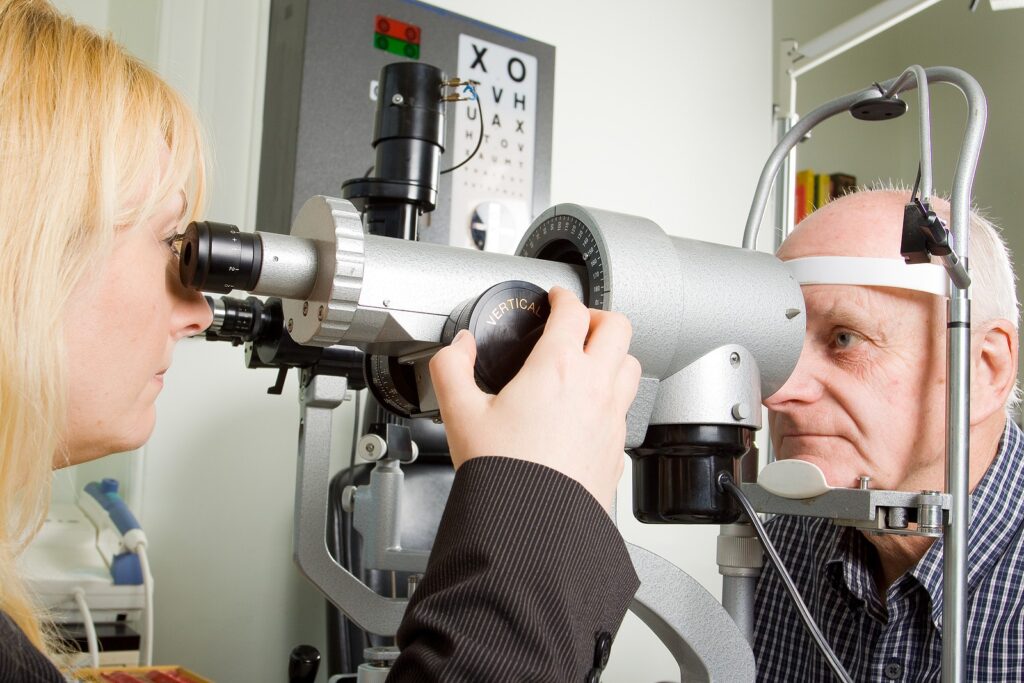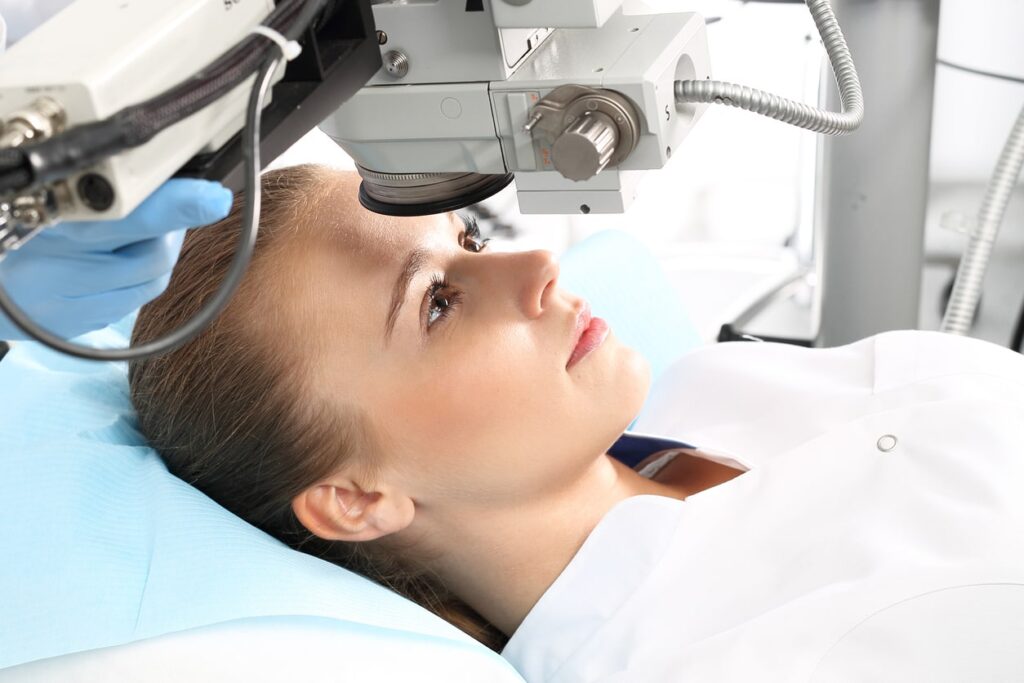Understanding Cataract Operation Consultation
A cataract operation consultation is a vital step in the journey toward restoring clear vision. During this consultation, the eye care professional evaluates the severity of the cataracts and discusses the potential surgical options available. The consultation serves as a foundation, ensuring that patients are well-informed and prepared for the subsequent steps in their treatment process.

The purpose of this appointment is not only to assess the extent of the cataract development but also to address any concerns the patient may have. The eye doctor will explain the condition of the eyes, the implications of the cataract, and the possible outcomes of the surgery. Overall, it’s an opportunity for patients to gain clarity and confidence about their care.
Defining Cataract Operation Consultation
A cataract operation consultation involves a comprehensive eye examination focused on diagnosing and evaluating cataracts. This includes reviewing visual acuity and eye health using advanced diagnostic tools. Typically, these consultations are conducted by an ophthalmologist, who specializes in eye surgeries and vision restoration.
During this consultation, various tests might be performed, including a thorough assessment of how cataracts are affecting the patient’s vision. The outcomes will provide a clear picture of what surgical intervention may be required and the potential effectiveness of such procedures. In addition to standard tests, the ophthalmologist may also utilize imaging technology, such as optical coherence tomography (OCT), to get a detailed view of the eye’s internal structures. This precision helps in crafting a tailored surgical plan that aligns with the patient’s specific needs.
Importance of Cataract Operation Consultation
The importance of attending a cataract operation consultation cannot be overstated. It is the first step in taking control of one’s eye health and preventing further vision deterioration. A timely consultation can lead to improved quality of life, as cataracts can significantly impair daily activities such as reading, driving, and even recognizing faces.
Additionally, getting professional insights during the consultation ensures that patients are not left in the dark about their condition. Understanding the diagnosis and treatment options empowers individuals to make informed choices about their health and well-being. Furthermore, the consultation often includes discussions about lifestyle adjustments and post-operative care, which are crucial for a successful recovery. Patients may learn about the importance of protecting their eyes from UV light, managing underlying health conditions, and adhering to follow-up appointments to monitor their progress effectively. This holistic approach not only enhances the surgical outcome but also promotes long-term eye health and wellness.
Preparing for Your Cataract Operation Consultation
Preparation is crucial for making the most out of your cataract operation consultation. The more organized you are before heading to your appointment, the more productive the visit will be. Here are some essential tips to ensure you are ready for your consultation.
Necessary Medical Records
One of the first steps in preparation is gathering necessary medical records. This includes a complete list of medications you are currently taking, previous eye exams, and any other relevant medical records that can provide context to your eye health history.
If you’ve undergone any prior eye surgeries or treatments for other health conditions, bringing along this information can significantly aid the ophthalmologist in assessing your situation. A comprehensive medical history will ensure that the doctor has all the required information to make informed recommendations about your cataract surgery. Additionally, consider including any allergies or sensitivities you may have, as this can influence the types of medications prescribed post-surgery and the overall management of your care. Learn more about allergies on https://www.urmc.rochester.edu/encyclopedia/content?contenttypeid=85&contentid=P09504

Questions to Ask Your Doctor
Preparing a list of questions to ask your doctor is another vital aspect of your consultation preparation. Consider discussing the following:
- What are the available surgical options for my cataracts?
- What are the expected outcomes of the surgery?
- What should I expect during the recovery process?
- Are there any risks or complications to be aware of?
Formulating inquiries in advance not only demonstrates your engagement in the process but also ensures that all your concerns are addressed. Being proactive during the consultation paves the way for effective communication between you and your healthcare provider. Moreover, you might want to inquire about the technology and techniques that will be used during your surgery. Understanding whether the procedure will involve traditional methods or advanced laser technology can give you insight into the potential benefits and recovery times associated with each option.
Furthermore, it may be beneficial to ask about the support available to you post-surgery. Knowing what resources, such as follow-up appointments or rehabilitation services, are accessible can help you feel more confident and prepared for the journey ahead. It’s also wise to discuss any lifestyle changes you may need to consider after the surgery, such as adjustments to your daily activities or the need for new eyewear. This comprehensive approach to your consultation will empower you with knowledge and clarity as you navigate your cataract treatment options.
The Consultation Process
Understanding the consultation process can significantly help alleviate anxiety about attending your appointment. The structure involves several key steps, each designed to thoroughly evaluate your condition and guide you toward the best treatment options.
Initial Eye Examination
The consultation typically begins with an initial eye examination. During this examination, the optometrist or ophthalmologist will assess your current vision using various tests, which may include visual acuity tests, dilating your pupils, and examining the retina.
This examination allows the doctor to determine the extent of the cataracts and how they are impacting your vision. The findings will serve as a basis for recommending the best surgical options available for your specific situation. In addition to these tests, advanced imaging techniques such as optical coherence tomography (OCT) may be employed to provide a more detailed view of the eye’s internal structures. This high-resolution imaging helps the doctor identify any additional issues that may not be immediately apparent, ensuring a comprehensive assessment of your eye health. Click here to find more about resolution.
Discussing Your Medical History
After the eye examination, the doctor will delve into your medical history. Expect to discuss details regarding any eye conditions, previous surgeries, or chronic health issues, such as diabetes or hypertension, which could influence the treatment plan.
This discussion is crucial as certain medical conditions can complicate surgery or affect both the procedure and recovery process. Ensuring that the surgeon has a clear understanding of your overall health will lead to a more tailored and safe surgical approach. Furthermore, this is an excellent opportunity for you to ask questions about the procedure, potential risks, and expected outcomes. Being well-informed can empower you to make decisions about your treatment and foster a collaborative relationship with your healthcare provider. Additionally, the doctor may recommend lifestyle adjustments or pre-operative preparations that can enhance your recovery and overall eye health, such as dietary changes or specific eye care routines to follow leading up to the surgery.
Post-Consultation Steps
Once your consultation concludes, you will have more clarity on the next steps. Depending on the findings from the eye exam and medical history discussion, you may be advised to proceed with surgery or explore other treatment methodologies. This is an important juncture in your eye care journey, as it sets the stage for your visual health moving forward. It is crucial to take the time to understand the implications of each option presented to you, as well as the potential outcomes associated with them.
Deciding on Surgery
Deciding on surgery is a significant choice that requires careful consideration. After the ophthalmologist reviews your examination results and factors in your health history, they will guide you through the decision-making process. This collaborative approach ensures that you feel supported and informed, allowing you to make the best choice for your individual circumstances.
Your input matters tremendously in this stage; it is essential to weigh the benefits and any potential risks. Should you choose to move forward with cataract surgery, the doctor will discuss scheduling, what to expect on the day of the surgery, and answer any lingering questions you might have. Additionally, they may provide you with educational materials or resources that can help demystify the procedure, making it less intimidating. Engaging in open dialogue with your healthcare provider can also help clarify any misconceptions you may have about the surgery and its recovery process.
Pre-Operation Preparations
Pre-operation preparations will commence once you’ve made the decision to proceed with cataract surgery. These preparatory steps may include additional tests, discussions about anesthesia, and planning for your post-operative care. It is during this phase that your healthcare team will ensure you are fully prepared for the surgical experience, addressing any concerns you may have about the procedure itself or the recovery period that follows.
Preparing for your surgery might also entail some lifestyle adjustments. For example, your doctor may advise you to stop taking certain medications that could increase the risk of complications during surgery. Understanding and following these preparatory guidelines is fundamental to ensuring a smooth surgical experience. Furthermore, it is advisable to arrange for transportation to and from the surgical facility, as you may be under the effects of anesthesia and unable to drive yourself home. Additionally, setting up a comfortable recovery space at home, stocked with necessary supplies and support, can significantly enhance your post-operative healing process. Taking these steps not only helps in minimizing anxiety but also sets you up for a successful recovery, allowing you to focus on regaining your vision and returning to your daily activities.
Potential Risks and Complications
Like any surgical procedure, cataract surgery has its potential risks and complications. Being aware of these can help you make an informed decision about moving forward.
Common Risks Associated with Cataract Surgery
Common risks associated with cataract surgery include infection, bleeding, inflammation, and vision changes. Some patients might experience postoperative complications such as retinal detachment or clouding of the lens, known as secondary cataracts.
It’s pivotal to discuss these risks with your doctor during your consultation, as individual factors such as overall health and the specifics of your cataracts can influence the likelihood of complications. Your physician will also have recommendations for minimizing these risks.
How to Mitigate Potential Complications
To mitigate potential complications, adhering to your surgeon’s preoperative and postoperative instructions is key. This may include avoiding certain activities in the initial weeks after surgery, taking prescribed medications, and attending follow-up appointments.
Being proactive in your aftercare can significantly contribute to a successful recovery. By understanding the potential complications and the necessary steps to prevent them, patients can approach cataract surgery with greater confidence and ease.
In conclusion, attending a cataract operation consultation is a crucial step toward gaining back clearer vision. By preparing adequately, understanding the process, and being aware of the risks, patients can make informed decisions that will lead to improved eye health and enhanced quality of life.
Read about lasik eye surgery on: Can LASIK Eye Surgery Help with Astigmatism

